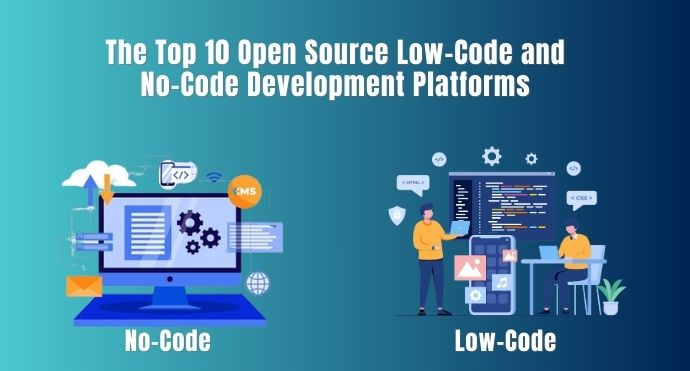In today’s fast-paced digital landscape, the demand for rapid application development is higher than ever. Low-code and no-code development platforms have emerged as game-changers, allowing individuals and businesses to create powerful applications without extensive coding expertise. For those who prefer open-source solutions, we’ve curated a list of the top 10 open-source low-code and no-code development platforms to help you navigate the landscape effectively.
| Platform | Description |
| 1. OutSystems | A popular commercial low-code platform known for its robust development capabilities and scalability. |
| 2. Mendix | Offers an intuitive low-code platform that empowers users to build applications quickly and efficiently. |
| 3. Appian | A low-code automation platform that provides tools for building apps, workflows, and case management. |
| 4. Microsoft Power Apps | Part of the Microsoft ecosystem, it enables users to create custom apps with ease and integrates seamlessly with other Microsoft tools. |
| 5. ServiceNow | Known for IT service management, ServiceNow also offers low-code capabilities for building various applications. |
| 6. Snowflake | A cloud-based data warehousing platform that simplifies data storage, processing, and analysis. |
| 7. Databricks | A unified analytics platform designed for big data and AI workloads, facilitating data engineering and machine learning tasks. |
| 8. Baserow | For those in need of spreadsheet and database solutions, Baserow is an open-source no-code platform that excels in these areas. With its drag-and-drop interface and data visualization tools, it’s an excellent choice for data-driven projects. |
| 9. Motor Admin | Motor Admin focuses on building admin panels with ease. Offering a drag-and-drop interface and a built-in API, it streamlines the creation of admin interfaces for various applications. |
| 10. GDevelop | If your ambitions lean towards game development, GDevelop is the open source no-code platform to explore. Specifically designed for building 2D games, it features a drag-and-drop interface and a built-in scripting language, making game development accessible to all. |
Why Open Source Low-Code and No-Code Platforms Matter
Open-source low-code and no-code platforms offer several distinct advantages:
Cost-Efficiency: Open-source platforms are often free to use, making them budget-friendly options for individuals and organizations.
Flexibility: These platforms provide flexibility in customization and integration with other tools and systems.
Community Support: Open source projects thrive on community involvement. You can tap into a pool of passionate developers and users for support and troubleshooting.
Transparency: With open source, you have visibility into the codebase, ensuring security and compliance with your organization’s standards.
Scalability: Many open-source solutions are scalable to accommodate your growing needs without breaking the bank.
Selecting the Right Platform for Your Needs
When choosing an open source low-code or no-code development platform, consider the following factors:
Type of Applications: Determine the kind of applications you want to build. Some platforms are more suitable for specific use cases, such as enterprise applications, IoT solutions, or game development.
Technical Expertise: Assess your own technical skills and those of your team. Some platforms are designed for non-technical users, while others may require more coding expertise.
Required Features: Different platforms offer different sets of features. Ensure the platform you choose aligns with your project’s requirements, whether it’s database management, content creation, or automation.
Community: Check the strength and activity of the platform’s user and developer community. A vibrant community can be an invaluable resource for assistance and knowledge sharing.
In conclusion, open source low-code and no-code development platforms empower individuals and organizations to create applications efficiently and cost-effectively. The choice of platform depends on your specific needs and goals. With this guide, we aim to equip you with the information needed to make an informed decision and embark on your application development journey with confidence. Whether you’re building databases, automating processes, or creating games, these open-source tools are your gateway to success.



